Attacked for years over high drug prices, the pharmaceutical industry has routinely defended itself by arguing that research is expensive and risky and that rebates to middlemen are growing.
But a congressional probe unveiled Wednesday plainly highlights another reason Celgene raised the price for multiple myeloma drug Revlimid numerous times over the years—to hit aggressive sales targets.
On separate occasions in 2014 and beyond, the drugmaker—which has since been acquired by Bristol Myers Squibb—raised Revlimid prices as sales lagged analyst expectations or fell short of its aggressive internal targets.
That’s according to the House Committee on Oversight and Government Reform, which distilled 50,000 pages of documents into a 45-page report (PDF) unveiled Wednesday. And the committee’s releasing that report just as ex-Celgene CEO Mark Alles and Bristol Myers chief Giovanni Caforio head to Capitol Hill to testify.
Celgene launched Revlimid in 2005 at a price of $215 per pill. After more than 20 price hikes, the drug now costs $763 per pill, or $16,023 per month. And the committee concluded that those years of price hikes didn’t depend on R&D investment or rebate pressure.
Indeed, during a 2015 deposition, a former Celgene VP said execs could raise Revlimid’s price “any time they wanted.” The congressional committee found several examples to back that claim.
Fierce Pharma
In early March 2014, Celgene’s then-executive vice president Mark Alles wrote a Saturday morning email to a colleague, saying the company’s forecast first-quarter sales for Revlimid were “forcing me to reconsider the 2014 pricing plan” for the drug in the U.S. The first quarter at the time looked “extremely challenged,” so Alles requested a Monday conversation over the “pros and cons” of a 4% price hike “not later than the end of next week” and then another increase Sept. 1 of that year.
“I have to consider every legitimate opportunity available to us to improve our Q1 performance,” he wrote. Alles later became Celgene’s CEO.
Days later, Alles presented the proposed price increase to a board at Celgene that approved Revlimid price increases, touting a potential revenue boost of $24.8 million from the move. Ahead of that meeting, he wrote to his team asking whether Celgene could “take the increase tonight so that it impacts sales beginning tomorrow.”
After the board approved, Celgene hiked the price that same night.
Other price increases also centered on revenue projections or long-term expectations, the committee’s probe found. In early 2016, Celgene execs weighed a more aggressive price increase than they had originally planned for that year, and they laid out the proposal in a presentation.
Instead of an April 2016 price increase of 3%, the company’s management proposed a 6.8% increase in March—plus a 3% increase in September. The more aggressive plan would deliver $217 million in additional revenues in 2016 and 2017, the presentation said.
The drugmaker moved on the 6.8% increase in March—and a 3% increase in August.
A 2017 document outlines how “favorable net price” changes would help the company grow its multiple myeloma franchise from $4.8 billion in 2016 to $8 billion in 2020. After that presentation, the company repeatedly raised Revlimid’s price, sending it upward by 30% between January 2017 and January 2019, the report says. In 2017 alone, the company raised Revlimid’s price by nearly 20% in a series of hikes.
But if the company’s goal was to grow its multiple myeloma business to $8 billion, the strategy worked. In 2018—two years ahead of the 2020 target—the franchise hit $7.8 billion on a massive $6.46 billion contribution from Revlimid.
For years, the pharma industry’s defense of price hikes has centered on high R&D costs, risky investments and rebates to middlemen. But the committee found those reasons didn’t apply in Revlimid’s case. Celgene “relied heavily on taxpayer-funded academic research to develop Revlimid, and its internal pricing decisions appear to have been unrelated to past or future investment in research and development,” the investigation found.
During Wednesday’s hearing, Alles said the company spent considerably on research for its drug. Celgene spent $800 million and 14 years developing Revlimid, Alles said, calling the medicine a “completely independent” development program.
And on the rebate issue, the committee concluded that Celgene paid “no negotiated discounts” to Medicare Part D. On the commercial markets, no discounts were larger than 5%.
Among other findings of the Celgene probe, the committee found that the company’s executive payment system incentivizes price hikes and that the company targeted the U.S. for high prices because the federal government is prohibited from negotiating prices.
Further, the company restricted competition by using the U.S. patent system to its advantage and by “abusing” a government drug safety program, the report found. The company’s “anticompetitive tactics” are believed to cost the U.S. healthcare system more than $45 billion through 2025, the committee says.
The late Rep. Elijah Cummings started the probe in early 2019 with letters to companies marketing 19 of the most profitable drugs in the U.S. After his passing last September, the committee pushed the work forward, and now six biopharma CEOs are set to testify on their pricing strategies this week.
Celgene’s Mark Alles, Bristol Myers Squibb CEO Giovanni Caforio and Teva CEO Kåre Schultz are on the docket today, with Amgen CEO Robert Bradway, Mallinckrodt CEO Mark Trudeau and Novartis’ U.S. president Thomas Kendris set to follow Thursday.
Also Wednesday, the committee released findings into Teva’s strategies on Copaxone. Read Fierce Pharma’s coverage of that report here.
Source: https://www.fiercepharma.com/pharma/celgene-repeatedly-raised-revlimid-s-price-to-meet-aggressive-sales-targets-congressional

